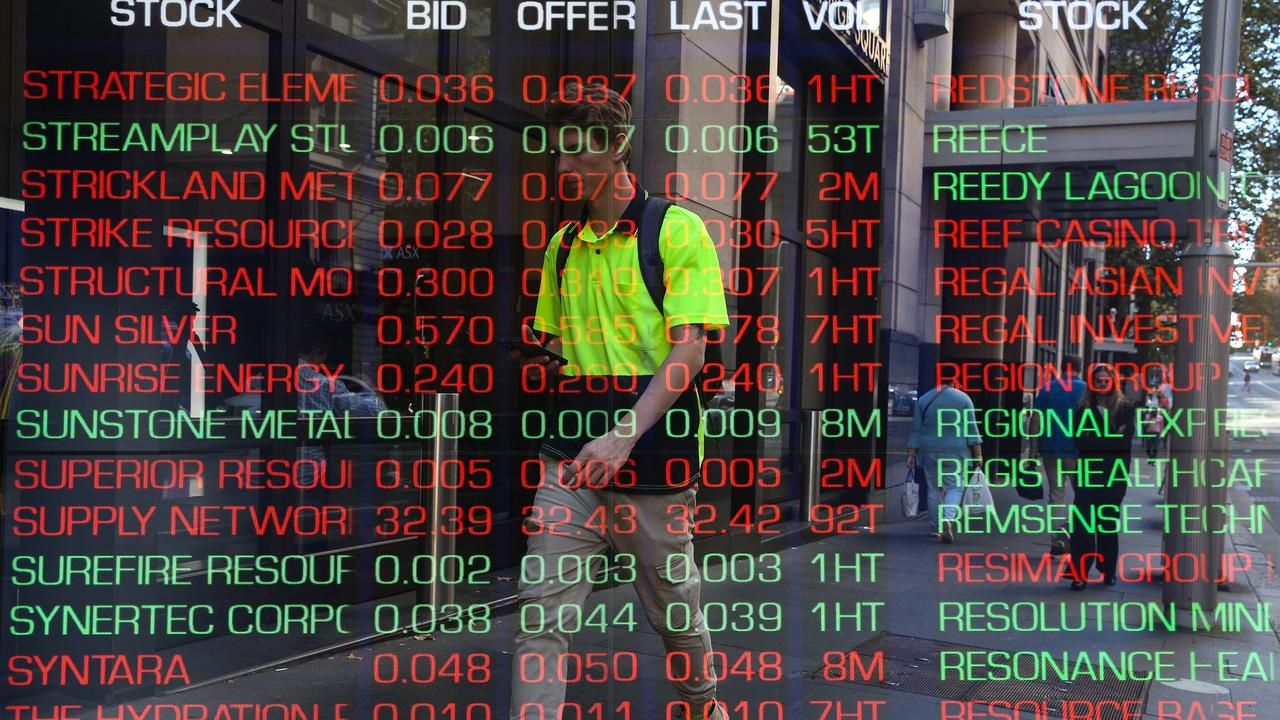Stay calm in torrid market times
WHEN trying to cope with volatile market times, investors should focus on fundamentals and think long-term.

Stay calm in torrid market times
BE ON your guard but stay calm - panic selling is bad for your wealth according to BT Super chief executive Melanie Evans.
Economies and markets are often affected by unexpected economic, political or natural calamities, such as the current US sub-prime mortgage crisis, Ms Evans said.
The key for investors is to stay calm, focus on investment fundamentals and remember that long-term investors have nothing to gain from short-term reactions.
Don't panic.
History tells us that events, however serious, are soon swamped by the long-term trend.
Since 1987 international share markets have been impacted by a whole range of events, the 1987 crash, the Asian currency crisis, the Russian bond market default and September 11, which in the longer term are ironed out by the long-term ascent of share markets.
Plunge, then bounce.
After the terrorist attacks on September 11, US markets stayed closed until September 17. In the five days following the re-opening, the S&P 500 index fell 11.6 per cent. In a warning against short-term panic, legendary investor Warren Buffett said: "Whatever you thought about the stock market before the World Trade Center is what you should be thinking now''.
As usual, he was right.
Share markets do react, often sharply, to crises. Yet they tend to snap back quickly as investors reassess the economic impact of these events.
Coping with crisis
Economics, nature and human nature being what they are, we will undoubtedly face another market crisis in the future.
Yet we know that over the long term, the effect of these crises will fade. There are still sensible precautions any investor can take to deal with a future crisis.
The most important is to have a financial plan, a written document that reminds you why you're investing, what your objectives are and how long you plan to invest for.
Such a plan is the perfect antidote to the tendency to panic, a reminder that long-term investors have nothing to gain from short-term reactions.
Understand risk
Coping with crises such as those outlined earlier, should form part of an investor's risk management plan. By understanding risk, investors will be in a better position to manage it in times of calamity plus benefit from risk over the longer term.
One way to manage economic and political risk is to diversify investments across different types of investments. Both the initial impact and repercussions of a major event will affect each type of investment differently.
Property, fixed interest and shares may react differently to prevailing economic and political conditions. By investing in different markets, you reduce the effect a fall in one market has on your overall portfolio.
Dollar cost averaging
Investing would be simple if you could always pick the best time to buy and sell. But timing the market like this is impossible.
One way to ride out the market's ups and downs is a technique called dollar cost averaging, typically used in managed funds as a way to smooth out the bumps over the longer term.
With dollar cost averaging, investors use the same amount of money each period (investors could think of their regular super contributions in this way) to buy units in a fund, whether prices are moving up or down. When unit prices are low, you can buy more units. When prices are high, your money buys fewer units. Over the long run, it averages out.
Remember, dollar cost averaging doesn't guarantee a profit, but can smooth the market's ups and downs (volatility) and may help reduce the risk of loss.



